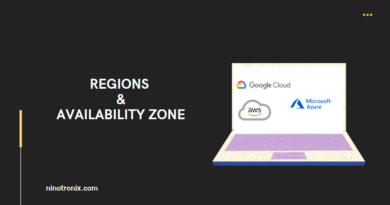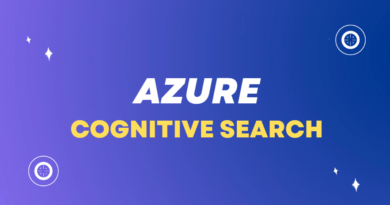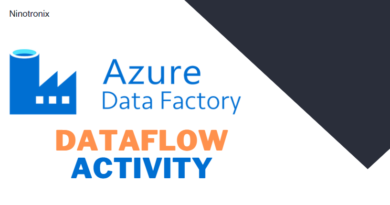Unleashing Creativity: Top 10 Azure Project Ideas for Beginners to Advanced
Introduction:
In the ever-expanding landscape of cloud computing, Microsoft Azure stands out as a versatile and powerful platform that fuels innovation. For enthusiasts and professionals looking to gain hands-on experience, embarking on Azure projects is a compelling way to deepen your understanding and enhance your skills. In this guide, we’ll unveil a curated list of the top 10 Azure project ideas suitable for beginners to advanced users, offering a spectrum of opportunities to explore the vast capabilities of the Azure cloud.
Why Pursue Azure Projects?
Before delving into the project ideas, let’s understand why engaging in Azure projects is a valuable endeavor. Azure projects provide a practical and immersive learning experience, allowing you to apply theoretical knowledge to real-world scenarios. These projects not only solidify your understanding of Azure services but also empower you to build a portfolio that showcases your practical skills—a crucial asset in the competitive world of IT.
Top 10 Azure Project Ideas:
1. Virtual Machine Automation:
- Skill Level: Beginner
- Description: Create a script using Azure PowerShell or Azure CLI to automate the deployment and configuration of virtual machines. Explore features like custom scripts, extensions, and ARM templates to streamline the process.
2. Web Application Deployment:
- Skill Level: Beginner
- Description: Deploy a web application using Azure App Service. Customize the deployment process, configure custom domains, and explore scalability options to handle varying levels of traffic.
3. Azure Functions for Serverless Computing:
- Skill Level: Intermediate
- Description: Develop serverless functions using Azure Functions. Build a system that triggers functions based on events, such as file uploads or database changes.
4. IoT Data Processing:
- Skill Level: Intermediate
- Description: Create an IoT project using Azure IoT Hub to collect and process data from connected devices. Implement features like real-time data streaming, device management, and data analytics.
5. Container Orchestration with Azure Kubernetes Service (AKS):
- Skill Level: Intermediate
- Description: Set up a containerized application using Docker and orchestrate it with Azure Kubernetes Service. Explore features like scaling, rolling updates, and integration with Azure Container Registry.
6. Azure Cognitive Services Integration:
- Skill Level: Intermediate
- Description: Integrate Azure Cognitive Services, such as computer vision, speech recognition, or language understanding, into a project. Create applications that leverage AI capabilities for enhanced functionality.
7. Data Warehousing with Azure Synapse Analytics:
- Skill Level: Advanced
- Description: Build a comprehensive data warehousing solution using Azure Synapse Analytics (formerly SQL Data Warehouse). Implement data integration, exploration, and analytical processing for large datasets.
8. Microservices Architecture with Azure Service Fabric:
- Skill Level: Advanced
- Description: Architect a microservices-based application using Azure Service Fabric. Implement service communication, stateful services, and explore advanced deployment strategies.
9. Serverless API Development with Azure API Management:
- Skill Level: Advanced
- Description: Design and implement a serverless API using Azure API Management. Explore features like API versioning, authentication, and rate limiting to create a robust API ecosystem.
10. DevOps Automation with Azure DevOps:
- Skill Level: Advanced
- Description: Implement end-to-end DevOps automation using Azure DevOps. Set up continuous integration, continuous deployment (CI/CD) pipelines, and explore advanced features for release management.
Best Practices for Azure Projects:
- Plan and Design:
- Clearly define the goals and scope of your project before starting. Design a solution architecture that aligns with best practices for scalability, security, and performance.
- Use Source Control:
- Implement version control using tools like Git. Azure DevOps Services provides robust source control capabilities for tracking changes and collaborating with others.
- Explore Monitoring and Logging:
- Integrate Azure Monitor and Azure Log Analytics into your projects. Implement logging and monitoring solutions to gain insights into application performance and resource utilization.
- Implement Security Measures:
- Prioritize security in your projects. Utilize Azure Active Directory for authentication, implement role-based access control (RBAC), and explore Azure Security Center for advanced security features.
- Document Your Projects:
- Maintain comprehensive documentation for your projects. Include details about the architecture, deployment steps, and any custom configurations. Well-documented projects are valuable for reference and knowledge-sharing.
Conclusion: Fueling Innovation with Azure Projects:
Engaging in Azure projects is not just a learning experience; it’s a journey of innovation and skill development. Whether you’re a beginner seeking foundational knowledge or an advanced user exploring complex architectures, these project ideas provide a roadmap to harnessing the full potential of Microsoft Azure. Embark on your Azure project journey, unlock creativity, and pave the way for a future where your skills in cloud computing are not just recognized but celebrated. The possibilities within the Azure cloud are limitless—let your projects be the catalyst for your success!



